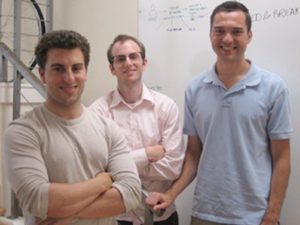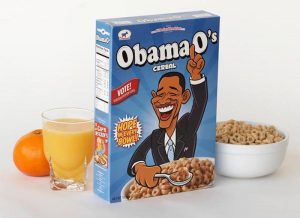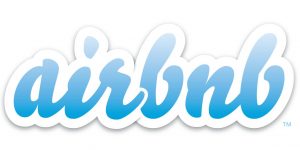Airbnb: Not an overnight sensation
So the accepted norm for the stellar internet based brands seemed to be that it all starts with a couple of college mates who have a flash of inspiration, an idea which will engage and better the world.
They set up a website which becomes an overnight sensation, quickly leading to world domination.
Somehow reality isn’t quite like that.

Joe Gebbia and Brain Chesky fit the mould, in so far as they met in 2002 at Rhode Island School of Design.
Gebbia had form when it came to “entrepreneurship”. He had designed a cushion for back sufferers and built a website for product designers to find eco-friendly resources, which he pitched as a ‘sort of Amazon for sustainable materials’. Unfortunately neither had delivered much success and certainly not on an Amazon-ian scale!
Chesky had recently left his job as a designer on the Simon Cowell show ‘American Inventor in LA’. He said ‘the last straw came when I designed a new kind of toilet seat’. He moved to San Francisco to share a flat with Gebbia.
However it was 2007 and Gebbia and Chesky were struggling to pay their rent. They needed some cash and they needed it fast. Their need coincided with an up-coming design conference which was based in San Francisco, but rather than try and sell their design skills to the event organizers, they noticed that the city’s hotels were fully booked, and came up with a lateral idea. It was not an idea to better the world but to earn them their rent!

Could they rent out the space in their flat to people attending the conference?
They bought three airbeds, decided to sweeten the offer with the promise of breakfast and created the not very originally named ‘airbedandbreakfast.com’ website. The cost was $80 a night. Six days later they had their first customers – a 30-year-old Indian man, a 35-year-old woman from Boston, and a 45-year-old father of four from Utah sleeping on their floor.
Wondering if this could be something bigger, they got together with their old roommate and programming expert Nathan Blecharczyk, to try and build a business.
For the first for months, they worked on a roommate-matching service until they realized Roommates.com already existed, at which point they went back to working on Air Bed and Breakfast.
They launched the brand for a second time and no one noticed.
The third time, they decided to target a time and place when the local hotels should be full. It was SXSW in 2008, but they only had two customers, and one of those was Chesky. Perhaps not too surprisingly their attempts to raise capital weren’t going well either. They approached 15 angel investors and got eight rejections, and seven more who ignored them completely.
Still preserving they tried again. Barack Obama was due to speak in Denver at the Democratic National Convention, and 80,000 people were expected to be there so again, there was likely to be a shortage of hotel rooms.
Gebbia, Chesky and Blecharczyk with a new website launched two weeks before the conference. Within a week they had 800 listings – everything should have be looking good. However given their costs, it looked like even with these 800 listings they weren ’t going to make any money.
’t going to make any money.
Luckily a PR stunt would come to their rescue. They had bought bulk quantities of cereal and designed packaging branded as ‘Obama’s O’s’ and ‘Cap’n McCain’ cereals. They sold 800 ‘limited-edition’ boxes at $40 each and made more than $30,000.
Their activity also attracted a Venture Capitalist called Paul Graham. Graham invited them to join Y Combinator, a prestigious start-up accelerator that provides out cash and training in exchange for a small slice of the company. The company spent the first three months of 2009 at the accelerator, working on further improving their offer.
Their lack of success with other VCs continued, and looking back Fred Wilson of Union Square Ventures admitted to one of those “guitar music is on the way out” moments – “We couldn’t wrap our heads around air mattresses on the living room floors as the next hotel room and did not chase the deal. Others saw the amazing team that we saw, funded them, and the rest is history.”
One thing that did change (perhaps because of feedback like this) was that in March 2009 they dropped the Air Bed & Breakfast name and simplified it to “Airbnb” to avoid the confusing associations with air mattresses.

One month later, Airbnb picked up a $600,000 seed investment from Sequoia Capital and from there the brand really began to take off.
And the moral is that most innovations aren’t overnight sensations and take time to build. What idea of yours deserves more time and perseverance?